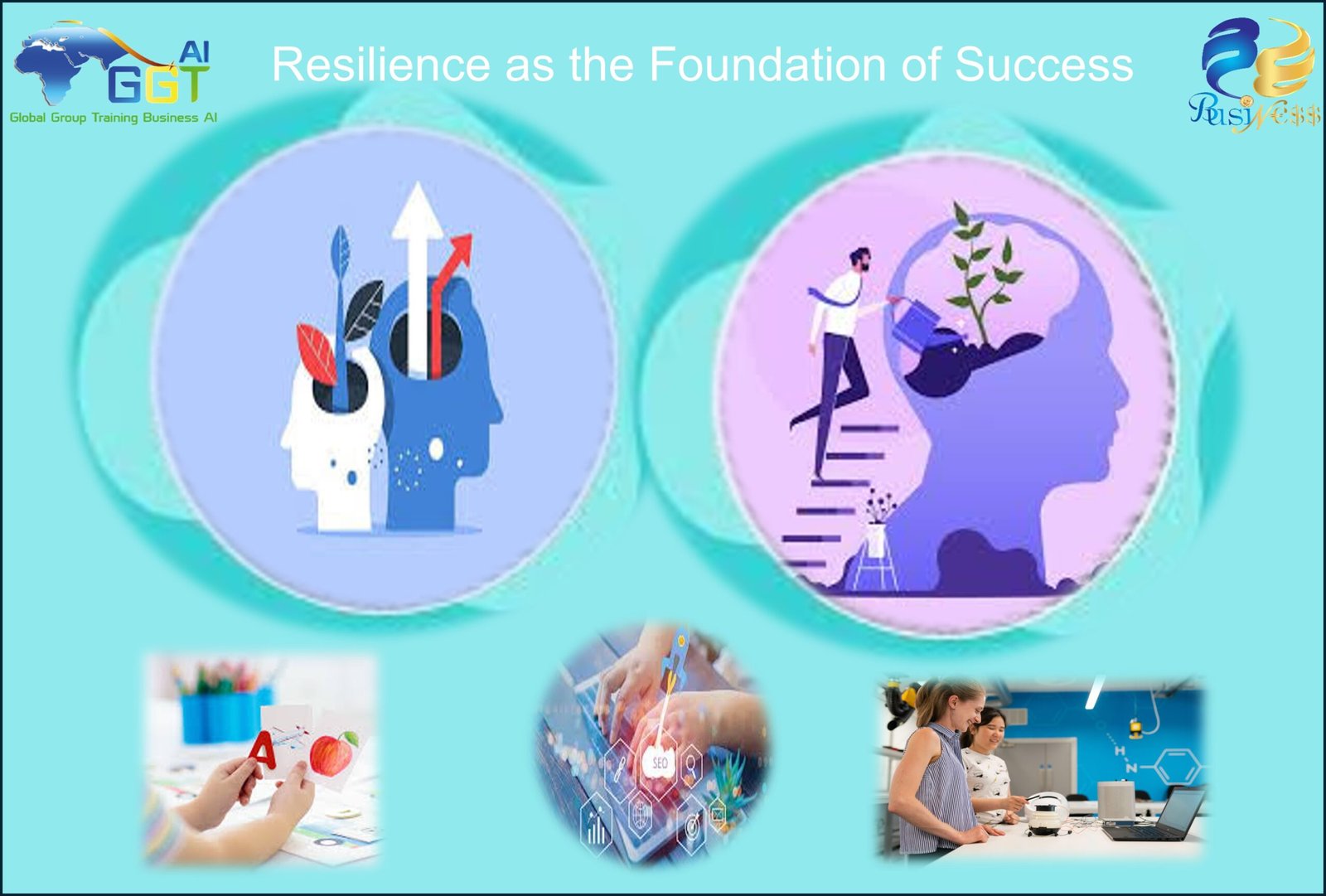

Content
First: What is flexibility?
Second: Flexibility is characterized by qualities
Third: How do we develop resilience?
Fourth: Practical Strategies for Building Resilience
Fifth: The role of flexibility in achieving success
Sixth: A story about resilience: Reem’s journey to success
Conclusion
Introduction
In life’s journey, we all face challenges and obstacles that may hinder our path toward achieving our goals. What sets successful people apart is resilience—the remarkable ability to adapt to changing circumstances and turn challenges into opportunities for growth and development.
Harness the power of resilience to maintain control in the face of change. This mindset turns challenges into pathways for improvement, ensuring sustained success and personal growth
First: What is flexibility?
Resilience: The Ability to Adapt and Learn: The More Resilient, the More Control
Resilience is the psychological and emotional ability to adapt to changes, recover from setbacks, and maintain a positive outlook in the face of adversity. It is a trait that can be developed through intentional practices and experiences, rather than being an inherent quality. The key components of resilience include:
These components enable individuals to perceive challenges as opportunities for growth and focus on solutions rather than problems.



Third: How do we develop resilience?
Organizations also demonstrate resilience by adapting to market changes, innovating in response to competition, and maintaining operational continuity during crises. Companies like Apple and Toyota have shown remarkable resilience by continuously evolving and improving their processes and products, viewing challenges as catalysts for innovation and growth.
Resilience is not an inherent trait but a skill that can be developed through training and practice. Here are some ways to cultivate resilience:
– Change Your Perspective: View challenges as opportunities for learning and growth rather than obstacles.
– Expect Change: Be prepared for change, as life is full of surprises.
– Accept Negative Emotions: Do not try to suppress negative emotions; accept and understand them.
– Learn from Experiences: Use past experiences, both positive and negative, to learn and grow.
– Seek Support: Do not hesitate to seek help from family, friends, or professionals when needed.
Fourth: Practical Strategies for Building Resilience
Building resilience is an ongoing process that requires a multifaceted approach, involving various techniques and practices to enhance the ability to adapt and thrive in the face of challenges.
Fifth: The role of flexibility in achieving success
Scientific studies indicate several factors that contribute to enhanced resilience, such as social support, optimism, and a sense of purpose. These factors help form a resilient mindset, enabling individuals to recover more effectively from setbacks. Examples of resilient individuals, such as athletes overcoming injuries or entrepreneurs rebuilding businesses after failure, illustrate the power of this trait.
– At Work: A resilient employee becomes well-regarded by colleagues and supervisors, aiding in career advancement and success.
– In Social Life: A resilient person earns respect and appreciation from their community, positively affecting the building of strong, lasting relationships.
– In Personal Life: Resilience contributes to creating a happy and stable family life, positively influencing an individual’s mental health and success in various life domains.
Sixth: A story about resilience: Reem’s journey to success
In the heart of a bustling city lived Reem, an ambitious young woman dreaming of success in the business world. Armed with her university degree, Reem embarked on her journey to achieve her dream, unaware of the challenges and difficulties that fate had in store for her.
Reem faced numerous challenges early in her career. Many companies rejected her due to her lack of experience, leading to frustration and casting shadows of doubt over her dream. However, Reem did not give up; she continued searching for new opportunities, believing in her abilities and potential.
After months of arduous job searching, Reem finally secured a position at a small company. However, she soon encountered new difficulties at work, leading to some mistakes. Reem did not get discouraged by these errors; instead, she saw them as opportunities to learn and grow. She made sure to analyze her mistakes and understand their causes, which helped her improve her performance and avoid repeating them in the future.
Over time, Reem proved her competence and dedication at work, earning the admiration of her supervisors and colleagues. She was persistent and patient, always willing to put in extra effort to achieve the best results. She also focused on building good relationships with her colleagues, which helped create a positive and effective work environment.
Thanks to her competence and perseverance, Reem received multiple promotions at work, helping her achieve her dream of reaching top leadership positions. Reem became an inspiration to many young people dreaming of success, serving as a living example that resilience, patience, and perseverance are keys to true success.
Reem’s story is a real-life example that embodies the importance of resilience in achieving success. She faced many challenges and difficulties but did not give up; she continued striving toward her dream with determination and resolve. Resilience enables us to turn challenges into opportunities for growth and development, achieving success in various life domains.
Conclusion
Resilience is a fundamental key to achieving success and happiness in life. By cultivating this skill, we become capable of handling any challenge with a positive spirit and strong determination, helping us achieve our goals and succeed in various aspects of life. Remember, there is no paved road to success; it is a journey full of challenges. But resilience is what allows us to turn these challenges into opportunities for growth and development. Make resilience your motto in life, and you will find yourself achieving true success and lasting happiness.